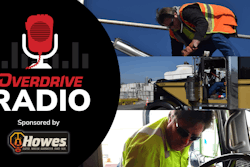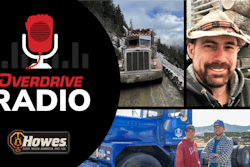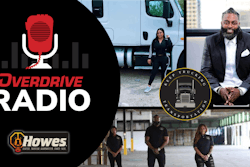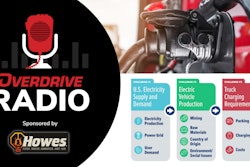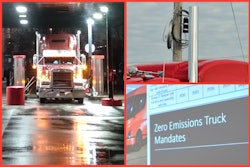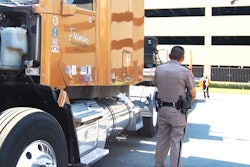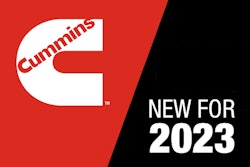There remains a stigma associated with mental health that can prevent many from getting effective help. That's among the messages that my colleague and Overdrive Extra contributor/longtime hauler Clifford Petersen communicates in today's special-edition Monday Overdrive Radio podcast -- apologies to all who were expecting our usual Friday drop. The last couple weeks have been a bit heavy for several of us here at Overdrive, since learning of the passing of an operator we knew who took his own life. It's a difficult subject to know how to approach, to communicate. Petersen is among us the best suited to speaking with authority on the broader issues. In the podcast, I dive in with him to talk through his journey to where he is today, with a mission to be a lifeline of support specifically to those who, like him, work over-the-road and struggle with anxiety, depression, in his case PTSD, and/or a myriad other issues. Petersen's trained in substance-abuse counseling, life coaching broadly, and a variety of psychological diagnoses and techniques.
There's some good news in all of this today, too, with signs that, both inside and outside trucking, attitudes around mental health are changing for the better. Look no farther than the struggles of Pennsylvania Senator John Fetterman, who took the dramatic step of seeking in-patient treatment for depression last week and was quite open with the public about it. Around trucking, there's the new training course in mental health from CarriersEdge. That company's CEO, Jane Jazrawy, told me last week that she's "wanted to write the course for a long time." Among reasons are a desire to bust up the stigma around mental health, but there's plenty in the way of practical concerns for operators and trucking companies there, too.
As Petersen makes note of in the podcast, trucking companies can be on the front lines of support for operators, of course, and Jazrawy hopes CarriersEdge subscriber fleets, and their back-office employees and operators, will take advantage of the course. She noted a question her organization asks in its surveying of fleets that are part of the evaluation for its well-known Best Fleets to Drive For recognition program. It's a question related to post-accident procedure. Fewer than 20% say they actually ask how the driver is in the initial post-crash conversation. "They go immediately to who’s at fault," Jazrawy said. "You have to consider that. But you also have a person on the road who’s been in a collision. ... Put the person first."
Jazrawy emphasized the importance not only of action but policy at trucking companies of all sizes. "I think it’s really important fleets think about what they’re saying in their policy," she said. "Are you going to start by making sure everybody’s OK" post-accident? "And not just doing it, but making sure you tell people that it should be automatic when someone gets in a collision. 'How are you feeling? Do you need a minute?'"

